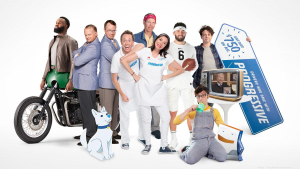
It’s telling you which way the wind is blowing.
Advertising is a psychological mirror. It offers images of what we think ourselves to be. It must do that to do its job. We see the people in an ad, we identify with them, and through that we identify with the product or service being sold to us. If we don’t identify with those people, we don’t buy the product. Thus, ads can’t make mistakes.
Look at the history of advertising, and you’ll see that clearly. You will see it in cleaning products, in cooking products, in cars and insurance ads. It’s why Aunt Jemima and Uncle Ben were beloved brand names for a century, until we saw the racism inside them. It’s why Toyota ads never change.
In 2021 ads are shouting one word. Diversity. They’re showing mixed-race couples far more often than you see them on the street. They’re showing same sex couples in the same way. Most spokesmen are now spokeswomen. An ad for VMware shows Cyrina Fiallo wearing sneakers and casual clothes telling viewers to “welcome change.” What’s striking about the new Verizon ad with Kate McKinnon is that she’s wearing heels. Then again, Verizon is a conservative company.
At its heart advertising represents the assumptions we have about ourselves and our society. Those assumptions change over time. When I was a kid, those assumptions were suburban, white, straight, and family oriented. This was true despite the fact these images were being challenged as never before and would in time be overthrown.
Today advertising is telling us something different. It’s not doing this because ad agencies and clients are “woke.” It’s doing this because ads showing the better angels of our nature work. Occasionally something like the Nike Colin Kaepernick campaign will stand out and draw comment. But the real message is found in ads like the Progressive Insurance campaign, where “Flo” (played by Stephanie Courtney) has evolved into a female management archetype, and Browns quarterback Baker Mayfield plays a househusband with a book club.
The point is that ads stand where consumers feel comfortable. They tell us more about our politics than any poll or pundit.











